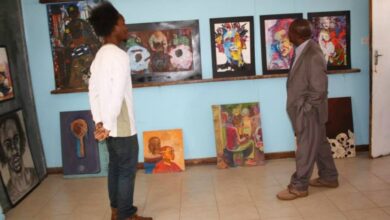Ndoyisile Sibindi Apologizes for Controversial Mall of Africa Remarks

Zimbabwean content creator Ndoyisile Sibindi recently found himself at the center of controversy after his comments about the Mall of Africa sparked outrage among South Africans. Sibindi, who is based in South Africa, had made remarks in a video criticizing residents of Tembisa for “overcrowding” the popular shopping destination, which he claimed made it “uncomfortable” for people like him who are claustrophobic.
“You want to tell me that you guys leave your mall in Tembisa, if there is a mall in Tembisa, to come and overcrowd Mall of Africa?” he said in the now-deleted video. “People are just gallivanting and occupying the mall for no reason.”
The video quickly went viral, drawing backlash from South Africans who felt the remarks were offensive and inappropriate. Many criticized Sibindi for questioning where South African citizens choose to spend their time, especially as a foreign national. Some even called for his deportation, arguing that he overstepped his boundaries.
Public Apology
In response to the uproar, Sibindi posted an apology on his YouTube channel, explaining that his comments were meant as a joke but had clearly missed the mark.
“This video is mainly to apologize to people from Tembisa who got offended by the video that is currently circulating,” Sibindi said. “First things first, I’m sorry if I offended you. It was not my intention; it was just a joke.”
Sibindi clarified that the video in question was a clip from a vlog he had posted two weeks earlier, and it was intended to explain why he had been unable to record his planned content at the Mall of Africa due to overcrowding. He emphasized that he did not mean to disrespect anyone and acknowledged that the video had been poorly received.
Mixed Reactions
While some accepted Sibindi’s apology, others were less forgiving. The incident has reignited discussions about the dynamics between South Africans and foreign nationals, particularly around issues of respect and cultural sensitivity.
For Sibindi, the experience serves as a cautionary tale about the importance of being mindful of one’s words and understanding the potential impact of online content.
As tensions simmer down, the content creator may need to work on rebuilding his reputation and fostering positive engagement with his audience in South Africa.




